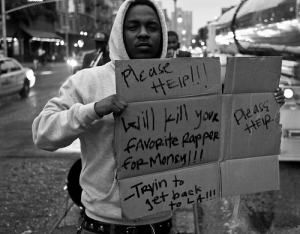The United States is nicknamed the “melting pot” because immigrants from all over the world come to share their cultures and live out what is known as the “American Dream.”
Though many people say they support culture and diversity, once the term “undocumented immigrants” is mentioned, they are quick to turn their heads. With the end of DACA becoming a terrifying reality, it seems there is a perception that undocumented immigrants are dangerous, selfish or undeserving of citizenship.
I have seen people dehumanize immigrants in the most belittling ways, yet no one seemed to actually care because it didn’t affect them. I mean, how hard can it be for someone to just get their citizenship and be a legal citizen?
Well, during my senior year of high school, everything I thought I knew came shattering down.
Adopted from South Korea when I was just 10 months old, I grew up living the ideals of the American Dream – studying hard in school, getting involved in the community and giving back to those in need. I had a driver’s license, held multiple jobs and enjoyed all of the benefits of being a citizen. My senior year, I was ecstatic because I was accepted into Bradley, the college I wanted to attend.
I was filling out FAFSA, just as nearly every senior in high school does, but things did not run quite as smoothly as expected. My FAFSA would not go through because of an error under my social security information, something I found very strange.
On April 1, 2016, I made the call to the social security administration, expecting a relatively quick fix. However, after giving them my information, I got an answer I had not expected.
“Ma’am, you are not a legally documented citizen of the United States.”
Was this some sort of sick April Fool’s joke? There seemed to be no other sort of logical explanation to how this possibly could have happened. My parents had gone through every legal step necessary to ensure I was a citizen.
I immediately went to the social security office to straighten things out. I remember being given a ticket labeled “Resident Alien” with an ID number and sulking in my chair realizing this was how I was being identified. Sobbing to an emotionless social security worker on the other side of a glass window, I was frustrated as to how I was thrusted into this situation.
I came to learn there were some complications with my immigration case, and my files were not properly transferred. In turn, my status was never changed, and I was an undocumented immigrant for nearly 17 years.
Eventually, I was lucky enough to be able to get things fixed and finally become a full citizen, but others are not as lucky as I was. By ending DACA, nearly 700,000 immigrants could face potential deportation from the “melting pot” and lose their ability to work at their jobs, study in school or live with their families.
On top of this, the end of DACA would affect the entire United States economy, and not in a good way. Without the protection DACA offers, workers are forced to leave the country, drop out of school or work illegally. Due to the high number of jobs that would be lost, experts speculate the U.S. could lose up to $200 billion – a number that will be hard to recover from.
Contrary to the idea of undocumented immigrants being criminals, studies show immigrants are actually less likely to commit crime than American-born citizens. On top of this, immigrants with criminal records are not eligible for DACA. By ending DACA, we are not preventing crime, we are preventing people from getting an education, feeding a family and living a life they deserve.
Want to make a difference? Call your local Congressperson to make your voice heard and protect our nation’s dreamers.




